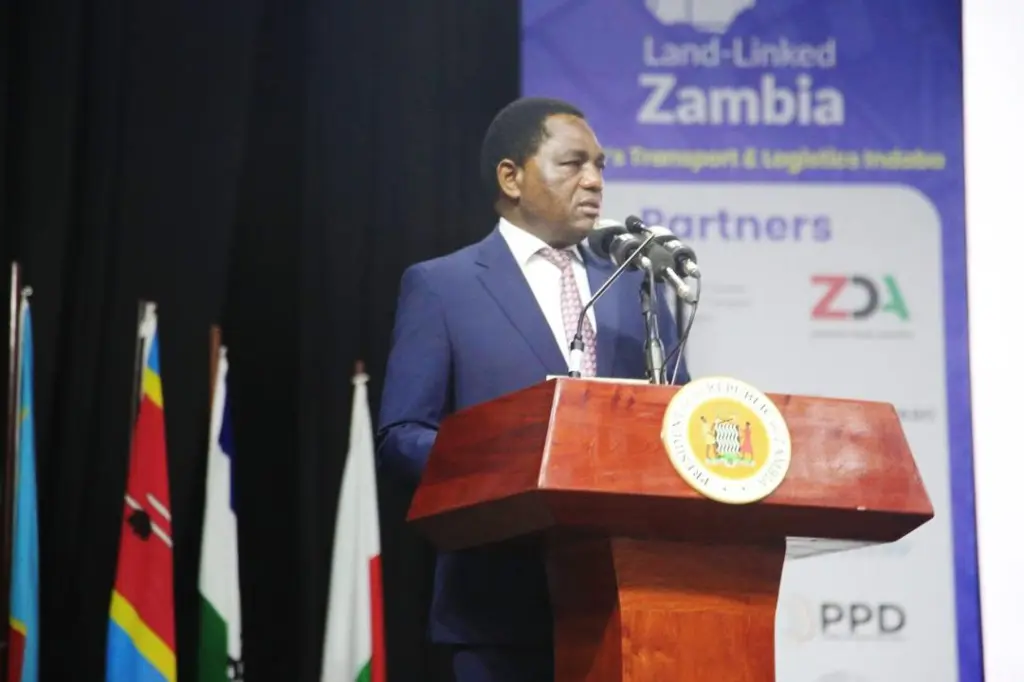Zambian President Hakainde Hichilema has called for stronger regional cooperation on infrastructure development, warning that Africa’s economic goals will remain out of reach without efficient transport networks to support trade.
Speaking at the fourth Land-Linked Zambia Conference, which opened Thursday in Lusaka, Hichilema identified underdeveloped transport systems as a major barrier to intra-African trade. He emphasized that modernizing the continent’s road and rail corridors requires collective effort. “Our intra-Africa trade levels are far below potential,” he said. “This is the result of poor transport links and cumbersome border processes. We need coordinated investment, not isolated projects.”
Private Sector Involvement and Border Reform
The president also underscored the importance of establishing one-stop border posts to ease the movement of goods across borders. He noted that faster clearance and improved logistics infrastructure would reduce the cost of doing business and accelerate economic integration.
Hichilema urged the private sector to work alongside governments in developing smart transport solutions, emphasizing that inclusive partnerships are essential for the continent’s progress.
Zambia’s Geostrategic Focus
Echoing the president’s message, Minister of Transport and Logistics Frank Tayali outlined Zambia’s efforts to capitalize on its central location. “Zambia is investing heavily in infrastructure to strengthen its connectivity with neighboring countries,” Tayali said. “Reducing transport costs is crucial not only for Zambia but for the region as a whole.”
Regional Leaders Gather in Lusaka
Held under the theme “Embracing Smart Transport Corridors in Africa,” the two-day summit has drawn 12 transport ministers from the Southern African region, along with industry stakeholders, development partners, and policy experts.
Discussions are focusing on harmonizing border procedures, upgrading road and rail infrastructure, and leveraging technology to modernize Africa’s logistics systems. The conference is also exploring sustainable financing models to support long-term infrastructure development.
With the African Continental Free Trade Area (AfCFTA) gaining traction, leaders at the summit agreed that streamlined transport systems will be vital to unlocking the continent’s full trade potential. As the summit continues, participants aim to forge actionable strategies that will drive regional integration and economic transformation.


